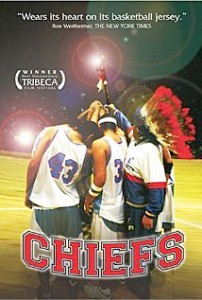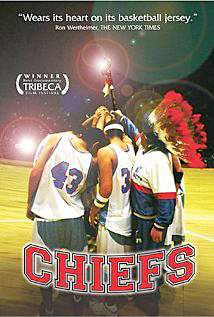
Documentary filmmakers must learn to tread softly when exploring and capturing different aspects of humanity and culture, while remaining respectful and natural in different situations. Academy- Award-Winning filmmaker Daniel Junge offers his expertise and experience to the DU and Denver community through a three-part event series on creating, directing and distributing documentary films that began last Wednesday.
Open to the public and free of charge, these events are part of the Documentary Film and Video Production introductory class taught by professors Diane Waldman and Sheila Schroeder. Junge and Schroeder, who are old acquaintances, met over the summer to discuss the event in hopes that it would intrigue the Denver community. Waldman and Schroeder’s students are required to attend the events, as they are in the process of making a short documentary film as a requirement for this class.
“This was a chance to bring our class into the public sphere here on campus,” said Schroeder, who is currently working on a documentary film entitled “Woodstock West: Build Not Burn” about a protest that took place on the DU campus in 1970 against the Vietnam War.
The first event and screening was held last Wednesday at The Women’s College where Junge showed his film, “Chiefs,” which won the Grand Jury Award at the 2002 Tribeca Film Festival and was shown on PBS’s documentary film series “Independent Lens.” This documentary follows players of the 2000 and 2001 Wyoming Indian High School Basketball team on and off the court.
There was a good turnout at the screen of “Chiefs,” which included a mix of both DU students and the Denver community.
“We were thrilled with the turnout and look forward to even more people coming to our next two screenings. A little less than half the turnout was our class, the rest were people interested in the film who might have seen our flyer or Facebook posting,” said Schroeder.
This event was sponsored by a grant from the Marsico Visiting Scholars Program, a committee that funds visiting scholars that will contribute to the intellectual life of DU students and faculty. These events were also supported by DocuWest International Film Festival.
Junge’s film follows the Chiefs basketball team as they travel up to 2000 miles to attend games and uphold a basketball legacy that involves 20 past trips to the state championship tournament and seven championship titles. Living on the Wind River Indian Reservation, the players are met with adversity and racial comments on the road and in competition. While their talent speaks for itself, many of these players never make it to the college level and if they do, most return home just weeks after leaving.
After the film, he discussed finding stories and subjects and gaining access as they pertained to “Chiefs.” When it comes to finding stories, especially for one’s first film, Junge believes in the age-old saying, “Do what you know.” While not a Native American himself, Junge grew up in Cheyenne, Wyoming and was familiar with the Chiefs due to his high school involvement with basketball.
“I always thought I would play professional basketball growing up,” said Junge. “Until I realized I couldn’t shoot.”
After graduation, Junge attended Colorado College where he discovered his love and talent for film. In order to pursue this passion, he transferred to New York University his junior year. It was there that he met George Stoney, a legendary documentary filmmaker and professor at NYU. Junge studied under Stoney for years while learning that documentary films are not that different from “popcorn films,” referring to blockbusters, as they share many of the same elements.
“Documentaries are casted,” said Junge. “You need to choose who will be in your movie.”
He explains that when casting, finding people with charisma is very important. For Chiefs, Beaver C’Bearing was that person. He was chosen as one of the main subjects for Junge’s project because he was a leader and very talented on the court. However, throughout the film, the audience can see him struggle to keep his act together off the court, which made him an unreliable teammate in the eyes of his peers.
When it came to getting access to his subjects and the reservation, Junge reached out to the Tribal Council and explained the concept of his documentary. When they approved him, he approached head coach for the Chiefs, Al Redman. Once he got the okay from Redman, Junge was ready to film.
During the filming process it was very important to Junge to give an honest and true portrayal of what it was like to live on an Indian Reservation and be a part of their culture at the turn of the century.
“I was tired of derogatory and over-honorific films towards Indians,” said Junge.
Out of respect for their culture and to make sure the film did not reveal any sacred Indian traditions, Junge broke his own rule to never give editorial control to his subjects. He let Redman view the documentary before its release.
The film series event will continue on Wednesday Jan. 23 at 6 p.m. at The Women’s College, Garden Room. Junge will show his film “They Killed Sister Dorothy,” his 2008 documentary about the killing of activist Sister Dorothy Stang, and will discuss editing stories and “true lies,” which refers to documentary ethics. The series will finish on Jan. 30 with a screening of Junge’s 2012 “Saving Face,” which won the Academy Award for Best Documentary Short in 2012 and explores the world of acid attacks on women in Pakistan. This will also take place in The Women’s College, Garden Room at 6 p.m., where drinks and refreshments will be provided.











